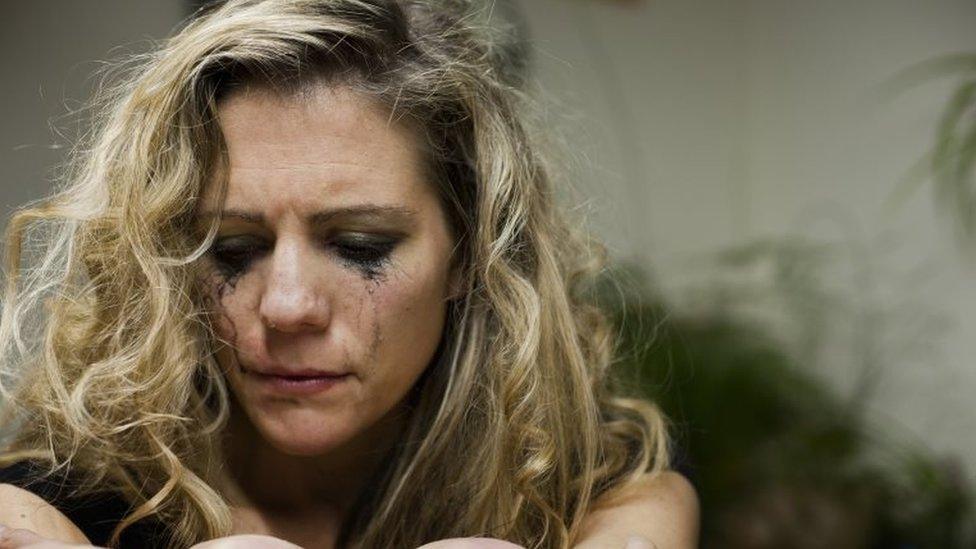Domestic violence: Scheme stops abusers writing to victims from jail
- Published
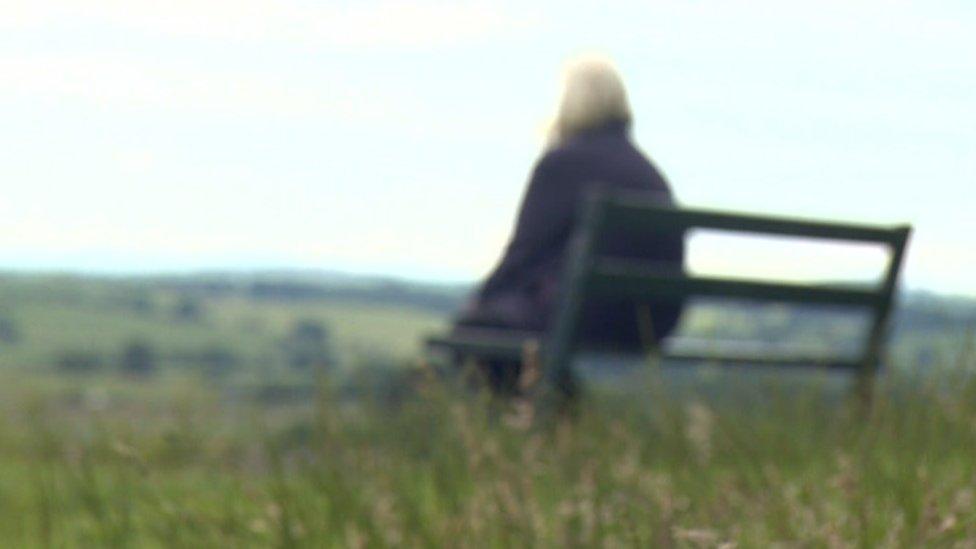
The woman spoke to the BBC anonymously about how she had contact with her abuser
A scheme to stop jailed domestic abusers terrorising their victims from prison should be rolled out nationwide, a senior figure has said.
One woman, whose abusive ex enlisted other inmates to send her threatening letters, said she was left "terrified".
North Yorkshire Police has launched information-sharing in seven prisons to ensure victims cannot be contacted.
Domestic abuse commissioner for England and Wales Nicole Jacobs said such measures should be standard practice.
Chris Robinson came up with the idea after working in jails and regularly witnessing inmates contacting former partners.
Now employed by the North Yorkshire force as a domestic violence specialist, he said: "I knew this was happening a lot with abusers contacting their victims or getting other prisoners to contact them from behind bars - putting pressure on them to change their statements or threatening them."
He contacted HMP Hull, where most domestic abuse offenders from North Yorkshire are housed, about the information-sharing system and it was launched last March.
When an abuser is jailed, North Yorkshire Police now makes sure the prison they are sent to has the offender's details and the victim's contact details, such as address and phone number.
A block is then put on the victim's information which prevents them being contacted by anyone in the jail.
Seven prisons have signed up to the scheme, generating 104 requests since it started. The force hopes others will adopt the practice.
'Growing demand' for domestic abuse services
Does following the 'rules' keep women safe?
One victim, who spoke to the BBC anonymously, said she was relieved when her abuser was jailed, but is now frightened of what will happen when he is released.
"He was very controlling, I had no life, I couldn't have any friends, I had to stay away from them," she said.
"He just wanted me to be in the house all the time and to do what he wanted.
"I'm terrified of him because I know what he can do."
Letters from prison made her feel as if he was still controlling her, she said.
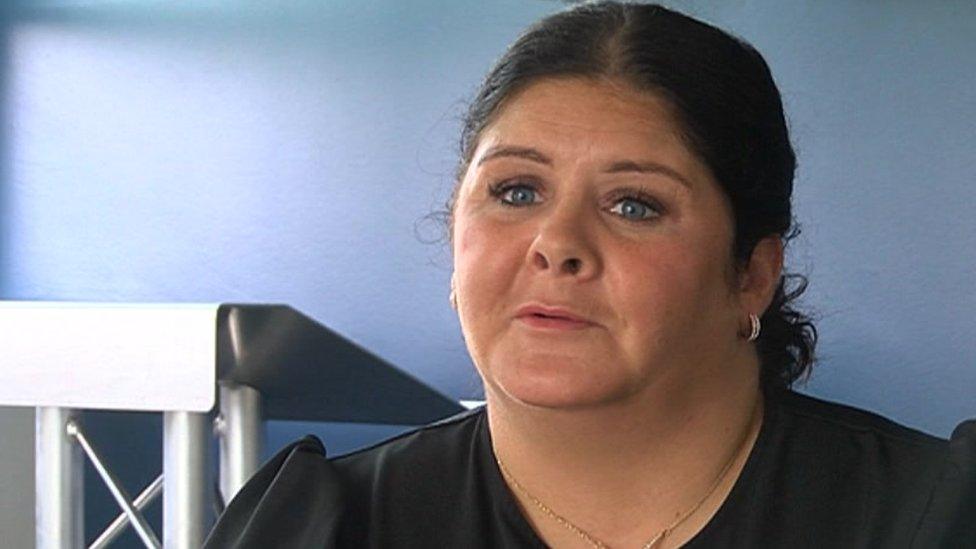
Det Con Amy Beveridge said the scheme aimed to show that victims were supported
"He was trying to brainwash me, manipulate me and he still had control of me and I didn't like it," she said.
When police found out what had happened, he was given more time behind bars.
Det Con Amy Beveridge, from North Yorkshire Police, said: "He'd been manipulating other prisoners to send letters and communicate with the victim, and I was quite shocked at that.
"I think abusers believe that when they get out, their victims will take them back, and they can win them back round because they've always been able to."
She said she wanted to show victims that they were supported, and restraining orders can be put in place to help make a difference.
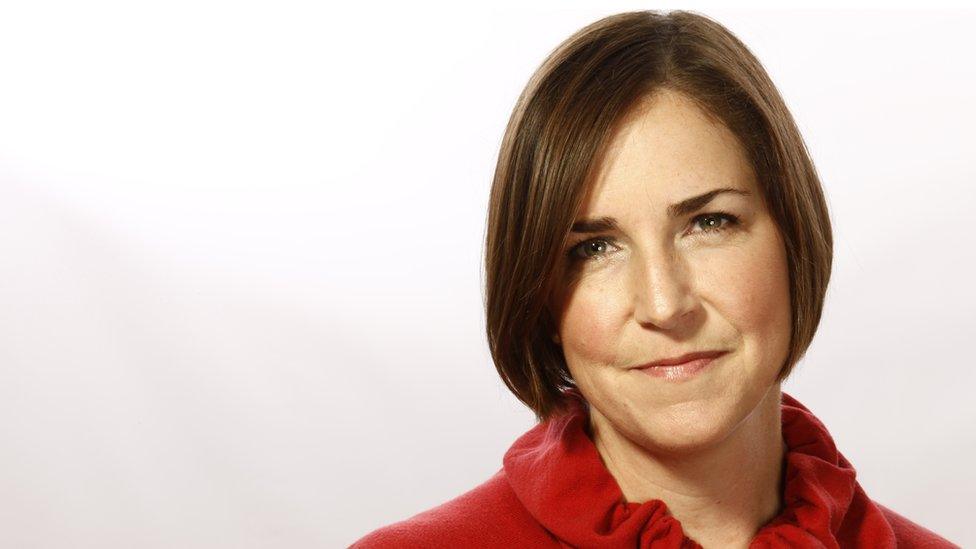
Nicole Jacobs has worked for domestic abuse charities for two decades
Ms Jacobs, who became the first domestic abuse commissioner earlier this year, called for the scheme to be used more widely.
"I have heard all kinds of horror stories over the years about continued abuse and control of domestic abuse victims from perpetrators who are in prison," she said.
"A scheme that keeps survivors safe from abusers after they have been jailed should be the bare minimum that victims can expect.
"No-one should have to be subjected to a bombardment of letters, emails or phone calls from a perpetrator, either inside or outside of jail."
Prisons taking part in the scheme are:
HMP Hull
HMP Leeds
HMP Doncaster
HMP Lindholme, near Doncaster in South Yorkshire
HMP Moorland, near Doncaster in South Yorkshire
HMP Hatfield, near Doncaster in South Yorkshire
HMP Wealstun in West Yorkshire
Karen Tate, Head of the Offender Management Unit at HMP Leeds, said: "This scheme has hugely enhanced HMP Leeds' ability to protect victims of domestic abuse.
"It also enables us to better help men engage with their rehabilitation, by signposting services that can change their behaviour in intimate or family relationships."
Prisons Minister Victoria Atkins said: "Home should be a place of safety for everyone and it cannot be right that perpetrators of abuse are able to continue their campaign of mental and emotional torment from behind bars.
"That is why this innovative scheme is so important in offering greater protection for survivors and their children and ensuring home can finally be a safe place once again."
If you have been affected by the issues raised in this article, help and support is available via BBC Action Line.

Follow BBC Yorkshire on Facebook, external, Twitter, external and Instagram, external. Send your story ideas to yorkslincs.news@bbc.co.uk, external.
Related topics
- Published25 June 2021
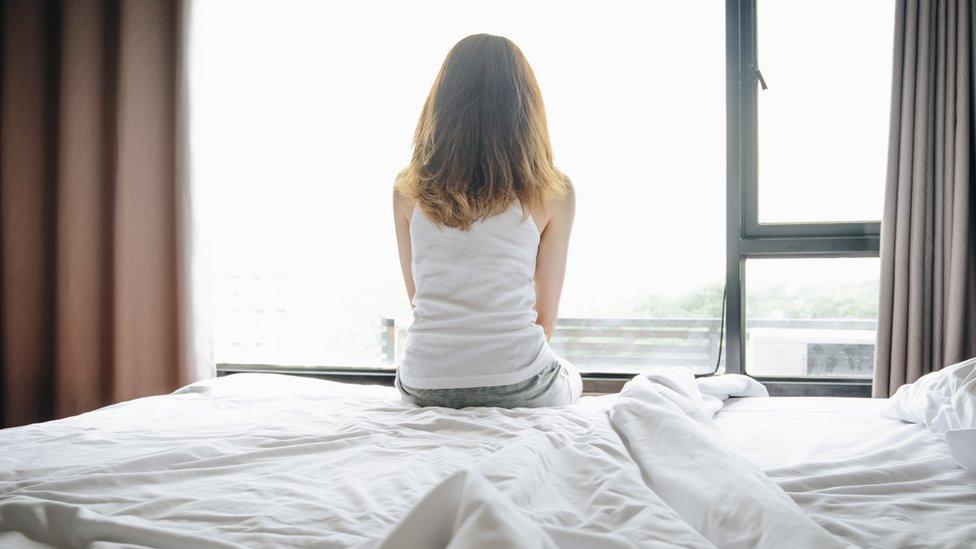
- Published23 March 2021

- Published12 February 2021
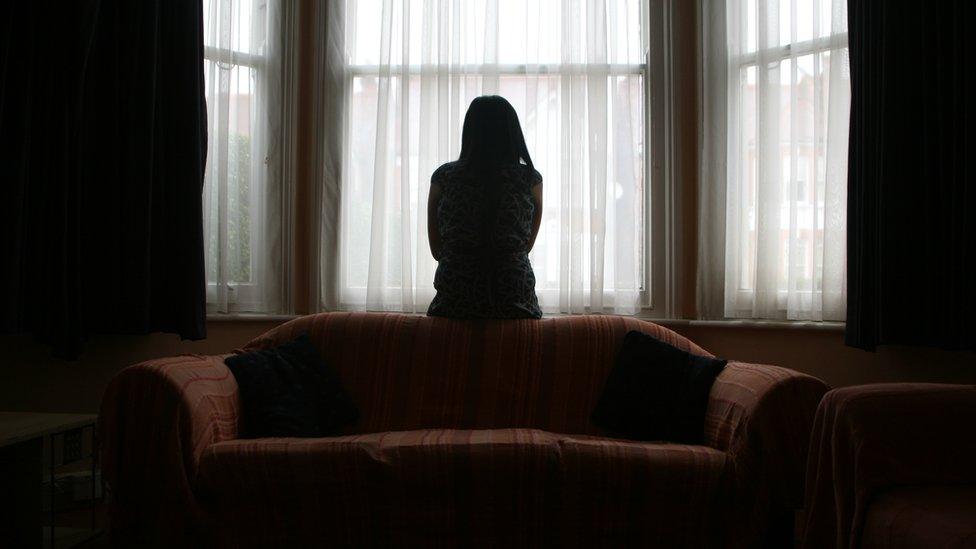
- Published7 January 2021
